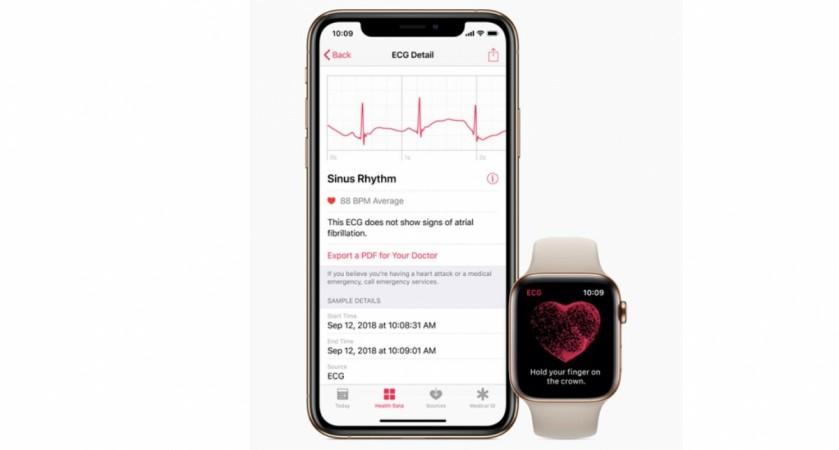Last week, Google announced to buy a secret smart wearable tech from Fossil Group along with its part R&D team for $40 million. This apparently led to speculations that the search engine giant is finally getting serious to make its own smartwatch, which many dubbing it as Pixel Watch to take on popular Apple Watch series.
Now, Verily, a health research division of the Google's parent company Alphabet Inc has officially received the 510(k) clearance from the U.S. Food and Drug Administration (FDA) to bring Electrocardiogram (ECG) reading technology to its Study Watch, which is designated as Class II medical device.

[Note: Most medical devices are considered Class II devices. Examples include powered wheelchairs and some pregnancy test kits. 43% of medical devices fall under this category- FDA]
"The FDA-cleared Study Watch is a prescription-only device intended to record, store, transfer and display single-channel ECG rhythms, and is indicated for use by healthcare professionals, adult patients with known or suspected heart conditions and health conscious individuals. The ability to take an on-demand, single-lead ECG, can support both population-based research and an individual's clinical care," Verily blog post said.
The latest development further gives credence to the Pixel Watch rumours. Given the added advantage of the Watch Series 4 having ECG reading capabilities, Apple's market share is soaring high. No rival brand has this kind of advanced technology and Google will be very keen to borrow Verily's smart wearable tech and offer it in Pixel Watch, off-the-counter to consumers. This can reinvigorate Google Wear OS-based smartwatch sales in global markets.

Competitions aside, with ECG feature on smart wearables, is good for the society as a whole. Soon after the ECG feature was activated on Apple Watch Series 4 in late 2018, it saved a device owner's life. He jokingly tested the app and got an early diagnosis of the atrial fibrillation (AFib), previously unknown condition.
AFib if left undetected can cause stroke and is said to be a second most common cause of death in the world.
With smartwatches coming with ECG and other health tracking sensors, more people's lives can be saved with early detection of heart ailments.
Besides AFib, there are several other cardiovascular health issues affecting the global population. Of the 56.9 million deaths worldwide in 2016, more than half (54%) were due to the top 10 causes. Ischaemic heart disease and stroke are the world's biggest killers, accounting for a combined 15.2 million deaths in 2016, the World Health Organisation (WHO) report published in 2018, said.















